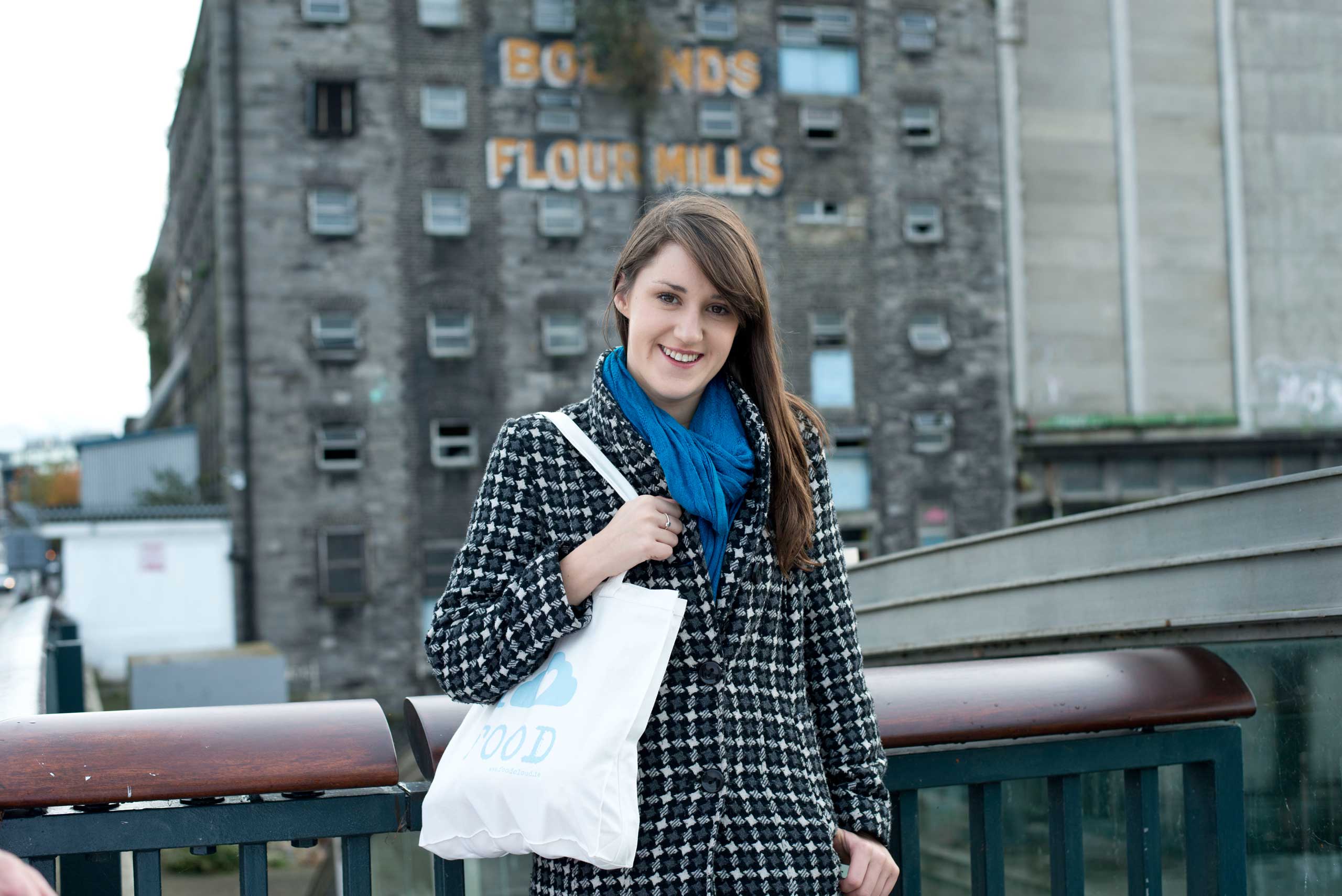When Iseult Ward walks into a supermarket in Dublin several employees greet her by name. One staff member hands her a crate of cabbage and potatoes, prompting the 24-year-old to smile broadly. “Oh, grand,” she says. Ward won’t be taking any of the produce home, though. The food is earmarked for a local charity.
As the CEO and co-founder of FoodCloud, a nonprofit food-sharing service that connects businesses with charities seeking food donations, Ward spends many evenings in the Irish capital, Dublin, making sure the handovers go smoothly. It’s that dedication that has helped turn FoodCloud, which launched in October 2013, into Ireland’s only nationwide food-sharing charity, facilitating the donation of more than a ton of surplus food every day in a country still emerging from a financial crisis that has hit the poor particularly hard.
FoodCloud works like this: Supermarkets or bakeries, which often have excess food, can sign up and at day’s end use the service’s app to upload details of any leftover food they wish to donate. A text message is then sent to local charities. If staff at a charity want to accept the donation, they can text back and collect the food.
Ward was studying business at Trinity College Dublin when the idea for FoodCloud formed. She’d been eyeing a lucrative career in finance but when she met Aoibheann O’Brien, FoodCloud’s co-founder, at a college event on food waste in 2012, something clicked. They were both dismayed that Ireland wastes a million tons of food each year while one in 10 people in the country go hungry.
“On the one side you have a load of food going to waste and on the other side you’ve got people who don’t enough to eat,” says Ward. “I really wanted to bring the two together.”
It wasn’t long before Ward and O’Brien were able to successfully connect a Dublin charity to a local farmer’s market, but they soon realized that playing matchmaker between charities and businesses was an enormous amount of work, particularly for two full-time students. Scaling their idea in order to become a functional charity and make a lasting impact would take a lot of time and work.
“The big break was when Iseult graduated and she applied for [LaunchBox],” says O’Brien, referring to a start-up accelerator program. “Everything changed when we had that full-time power behind it.”
LaunchBox offered office space, business mentorship and a salary, which meant Ward had time to cold-call businesses, to research Ireland’s charity industry, and to streamline donations by having an app built.
She also tackled the red tape surrounding handling food. “You’d think it would just be like pizza delivery, but it’s not,” says Ward. “Everyone has to be trained in food safety.”

For guidance she turned to charity-sector veteran Brendan Dowling, a local community volunteer in Dublin. He was impressed with FoodCloud and he happily offered advice on navigating bureaucracy and networking. “There’s a great sense of authenticity,” he says of Ward. “There is a passion there.”
Dowling loved FoodCloud’s use of technology so much that his community center soon “mirrored their concept.” He now uses a mass text service to alert local families when there’s a donation through FoodCloud – and is able to connect with nearly 200 families as a result.
Yet it isn’t just technology that has bolstered FoodCloud; Ward’s business education has helped make the service self-sustainable. “We were very focused on getting a revenue model that worked,” she says, so they could avoid time-consuming fund-raising. FoodCloud charges larger participating businesses to take away their surplus food. Ward says it’s still a win for the big donors because FoodCloud is helping them reduce waste disposal costs.
In July, FoodCloud announced a partnership with Tesco, the biggest supermarket chain in Ireland. By February, all of Tesco’s 146 stores across Ireland will be making donations.
“What we loved was how innovative it was and how simple an idea it was,” says Christine Heffernan, Tesco Ireland’s corporate affairs director, adding that the food retailer has paid FoodCloud €250,000 ($312,00) for a year’s contract. That investment has meant that Ward and O’Brien have been able to hire a staff of four. FoodCloud is also launching trials with two other major supermarkets in Ireland.
And it’s not just businesses and charities that have recognized the difference FoodCloud has made. This month, Ward and O’Brien were awarded Social Entrepreneurs Ireland’s Impact Award, which recognizes local projects with innovative solutions to social problems. The award not only acknowledges Ward’s hard work, it also comes with €100,000 ($125,000) prize and two years of business support, which will help FoodCloud to keep growing.
Ward wants to keep expanding the reach of FoodCloud until the organization has all but eradicated food poverty in Ireland. It’s a huge task — but so is Ward’s appetite for change.
- Donald Trump Is TIME's 2024 Person of the Year
- Why We Chose Trump as Person of the Year
- Is Intermittent Fasting Good or Bad for You?
- The 100 Must-Read Books of 2024
- The 20 Best Christmas TV Episodes
- Column: If Optimism Feels Ridiculous Now, Try Hope
- The Future of Climate Action Is Trade Policy
- Merle Bombardieri Is Helping People Make the Baby Decision